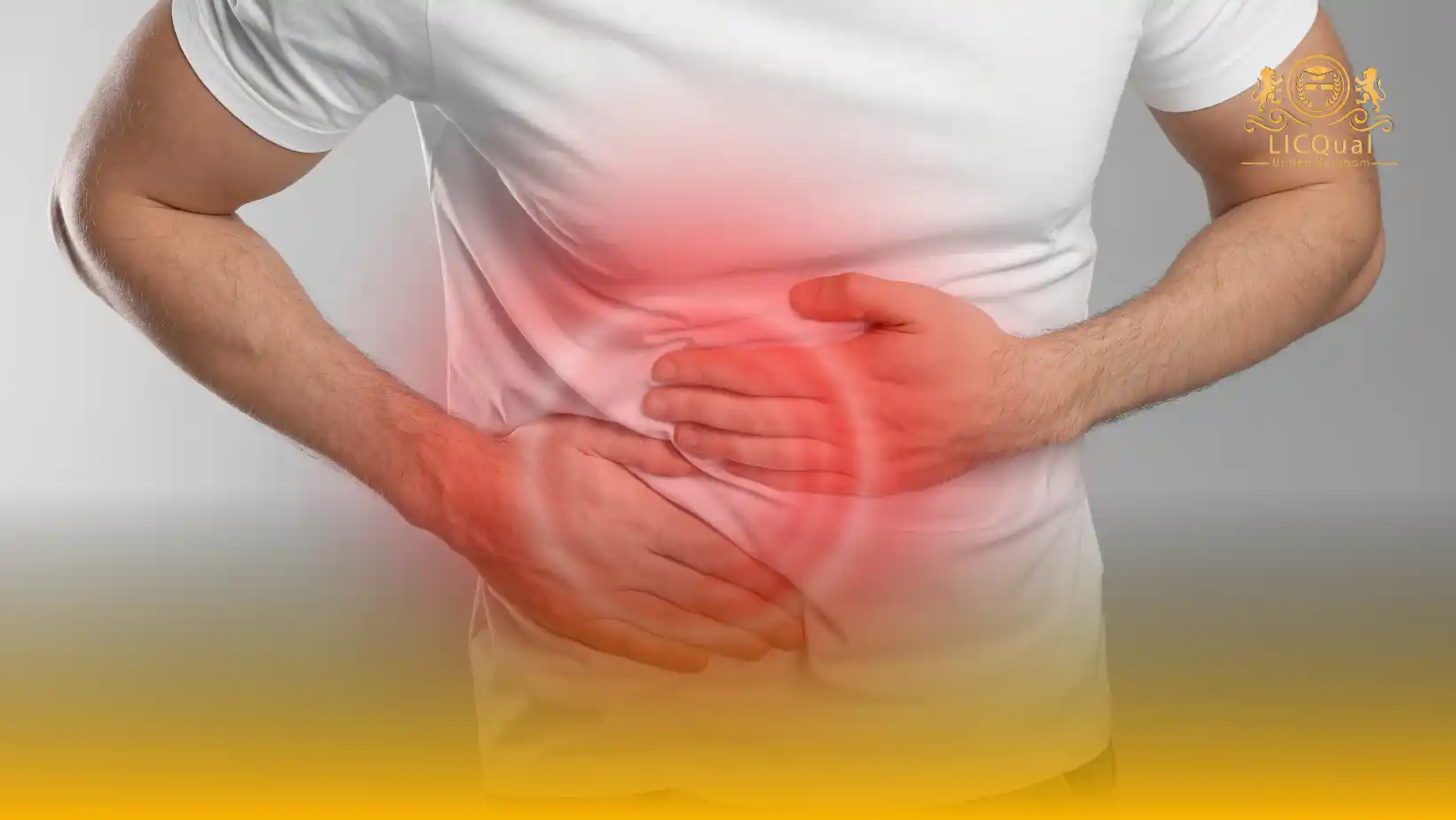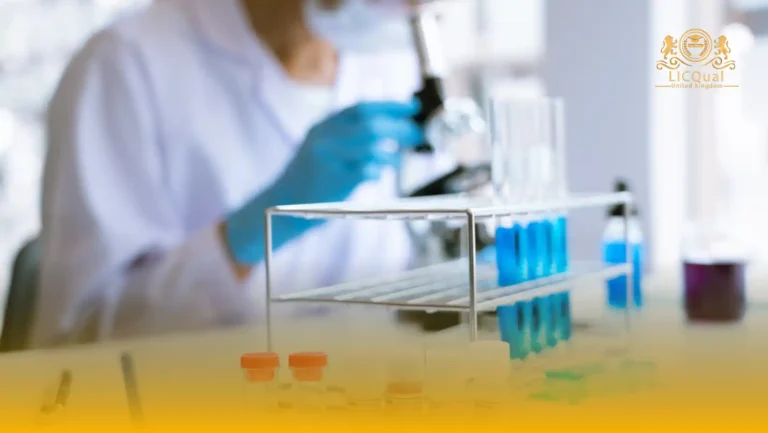The LICQual Level 6 Diploma in Gastroenterology (Dip G) is a specialised and advanced qualification designed for healthcare professionals who aim to deepen their expertise in the diagnosis, treatment, and management of gastrointestinal conditions. This diploma is not intended for fresh candidates but is tailored for experienced practitioners who wish to enhance their career opportunities, expand their medical knowledge, and strengthen their Continuing Professional Development (CPD).
Gastroenterology is a vital discipline in modern medicine, focusing on disorders of the digestive system, including the stomach, intestines, liver, and pancreas. With the rising prevalence of gastrointestinal diseases globally, there is a growing demand for professionals who possess advanced skills and evidence-based knowledge in this field. The Level 6 Diploma in Gastroenterology equips learners with the competencies required to apply clinical best practices, evaluate complex cases, and contribute to improving patient outcomes.
Centres offering this qualification must ensure that training is delivered to the highest standards. This requires qualified and experienced faculty members, access to specialist learning materials, and the provision of modern resources such as case studies, journals, and research-based content. Furthermore, institutions must have robust quality assurance systems in place to support effective teaching, learner engagement, and successful achievement of the diploma.
By completing the LICQual Level 6 Diploma in Gastroenterology, learners gain a recognised qualification that not only supports their professional growth but also enhances their ability to contribute significantly to clinical practice and the advancement of healthcare standards in gastroenterology.
Course Overview
Qualification Title
LICQual Level 6 Diploma in Gastroenterology (Dip G)
Total Units
6
Total Credits
120
GLH
480
Qualification #
LICQ2200935
Qualification Specification
To enroll in the LICQual Level 6 Diploma in Gastroenterology (Dip G), applicants must meet the following criteria:
|
Qualification# |
Unit Title |
Credits |
GLH |
|---|---|---|---|
|
LICQ2200935-1 |
Principles of Gastroenterology |
20 |
80 |
|
LICQ2200935-2 |
Gastrointestinal Disorders and Diseases |
20 |
80 |
|
LICQ2200935-3 |
Diagnostic Techniques in Gastroenterology |
20 |
80 |
|
LICQ2200935-4 |
Therapeutic Approaches and Management |
20 |
80 |
|
LICQ2200935-5 |
Gastroenterology in Special Populations |
20 |
80 |
|
LICQ2200935-6 |
Research Methods and Evidence-Based Practice in Gastroenterology |
20 |
80 |
By the end of this course, learners will be able to:
Unit 1: Principles of Gastroenterology
By the end of this unit, learners will be able to:
- Demonstrate advanced knowledge of the anatomy and physiology of the gastrointestinal system.
- Critically analyse the pathophysiology of major GI organs and processes.
- Evaluate the role of the GI system in maintaining homeostasis and overall health.
- Apply theoretical knowledge to clinical case scenarios.
Unit 2: Gastrointestinal Disorders and Diseases
By the end of this unit, learners will be able to:
- Identify and classify common and complex gastrointestinal disorders.
- Critically evaluate the aetiology, clinical presentation, and progression of GI diseases.
- Apply differential diagnostic reasoning to complex patient cases.
- Assess the impact of gastrointestinal conditions on quality of life and long-term health outcomes.
Unit 3: Diagnostic Techniques in Gastroenterology
By the end of this unit, learners will be able to:
- Demonstrate understanding of diagnostic tools such as endoscopy, imaging, and laboratory tests.
- Critically interpret diagnostic findings to support clinical decision-making.
- Evaluate the benefits, limitations, and risks of diagnostic procedures.
- Integrate diagnostic techniques into evidence-based clinical practice.
Unit 4: Therapeutic Approaches and Management
By the end of this unit, learners will be able to:
- Analyse pharmacological, surgical, and nutritional treatment options for GI diseases.
- Critically assess the role of lifestyle modification and patient education in disease management.
- Demonstrate knowledge of emerging therapies and innovations in gastroenterology.
- Develop safe, ethical, and patient-centred management plans for various GI conditions.
Unit 5: Gastroenterology in Special Populations
By the end of this unit, learners will be able to:
- Examine gastroenterological disorders in paediatric, geriatric, and immunocompromised populations.
- Evaluate unique diagnostic and therapeutic considerations for special populations.
- Critically assess the impact of comorbidities on gastrointestinal health.
- Apply inclusive and ethical approaches to managing vulnerable patient groups.
Unit 6: Research Methods and Evidence-Based Practice in Gastroenterology
By the end of this unit, learners will be able to:
- Demonstrate understanding of research methodologies relevant to clinical gastroenterology.
- Critically appraise scientific literature to inform evidence-based practice.
- Design and propose small-scale clinical research projects or audits.
- Apply ethical and professional standards in research and scholarly inquiry.
The LICQual Level 6 Diploma in Gastroenterology (Dip G) is designed for healthcare professionals, medical practitioners, and specialists who wish to advance their knowledge and skills in digestive and liver health. This course is ideal for individuals looking to gain a UK-accredited Gastroenterology qualification, enhance clinical expertise, and progress in their healthcare careers. Whether you work in hospitals, clinics, or research settings, this diploma provides the tools and knowledge to excel in gastrointestinal medicine.
1. Medical Doctors and Practitioners
- Enhance your expertise in diagnosing and managing gastrointestinal disorders.
- Gain advanced knowledge in liver and digestive health.
- Learn evidence-based approaches for patient-centered care.
- Strengthen clinical decision-making skills in gastroenterology.
- Earn a UK-accredited Level 6 Gastroenterology qualification.
2. Gastroenterology Specialists and Consultants
- Deepen understanding of complex gastrointestinal and liver conditions.
- Stay updated with the latest research and treatment trends.
- Improve patient outcomes through specialized gastroenterology care.
- Build credibility as an expert in digestive health.
- Access tools and strategies for managing complex gastroenterology cases.
3. Nurses and Healthcare Professionals
- Develop practical skills to support gastrointestinal diagnostics and treatments.
- Learn to assist in endoscopy and clinical gastroenterology procedures.
- Improve patient communication and counseling techniques.
- Enhance professional credibility in hospitals and clinics.
- Advance your career in gastroenterology and liver care departments.
4. Medical Graduates and Students
- Strengthen foundational knowledge in gastroenterology and hepatology.
- Prepare for specialist roles or postgraduate medical studies.
- Understand chronic disease management for digestive disorders.
- Gain a globally recognized UK-accredited diploma.
- Improve employability in hospitals, research centers, and specialty clinics.
5. Healthcare Administrators and Managers
- Understand operational challenges in gastroenterology departments.
- Learn to optimize workflow and patient care processes.
- Apply evidence-based strategies for managing clinical services.
- Enhance decision-making in both administrative and clinical roles.
- Build strategies for sustainable and effective digestive healthcare management.
6. International Healthcare Professionals
- Study globally recognized gastroenterology modules online.
- Expand career opportunities in digestive health worldwide.
- Learn from UK-accredited curriculum designed for international standards.
- Bridge professional knowledge gaps in gastroenterology and liver care.
- Network with healthcare professionals across the global medical community.
7. Research Scholars and Educators
- Advance research in gastroenterology and hepatology.
- Explore the latest clinical innovations and evidence-based practices.
- Gain credibility for teaching or academic roles in digestive health.
- Develop skills to conduct advanced studies in gastrointestinal medicine.
- Strengthen academic and professional profiles with a recognized qualification.
Centres delivering the LICQual Level 6 Diploma in Gastroenterology (Dip G) must meet the highest standards to ensure quality training, learner success, and compliance with international best practices. To deliver this qualification effectively, centres are required to have the following:
- Qualified and Experienced Staff – Tutors, assessors, and facilitators must hold relevant academic and professional qualifications in gastroenterology or related medical fields, along with proven teaching and clinical experience.
- Appropriate Teaching Facilities – Centres must provide well-equipped classrooms, access to modern learning technologies, and suitable environments to support both theoretical and practical learning.
- Comprehensive Learning Resources – Availability of up-to-date textbooks, medical journals, e-learning platforms, and access to gastroenterology research materials for effective learner engagement.
- Clinical and Practical Training Support – Where applicable, centres should provide access to healthcare settings, case studies, or simulations to ensure learners can apply theoretical knowledge to real-world practice.
- Robust Quality Assurance Systems – Clear internal assessment policies, external verification processes, and continuous monitoring to maintain the highest training standards.
- Learner Support Services – Guidance, mentoring, and academic support to help learners progress successfully throughout the course.
- Commitment to CPD and Innovation – Centres must demonstrate ongoing staff development, ensuring trainers remain updated with the latest gastroenterology advancements and medical education practices.
Assessment and Verification
All units within this qualification are subject to internal assessment by the approved centre and external verification by LICQual. The qualification follows a criterion-referenced assessment approach, ensuring that learners meet all specified learning outcomes.
To achieve a ‘Pass’ in any unit, learners must provide valid, sufficient, and authentic evidence demonstrating their attainment of all learning outcomes and compliance with the prescribed assessment criteria. The Assessor is responsible for evaluating the evidence and determining whether the learner has successfully met the required standards.
Assessors must maintain a clear and comprehensive audit trail, documenting the basis for their assessment decisions to ensure transparency, consistency, and compliance with quality assurance requirements.







